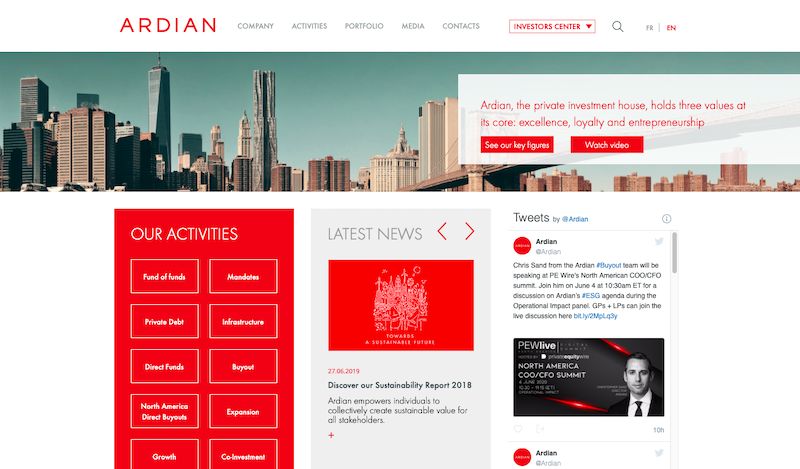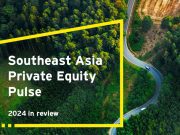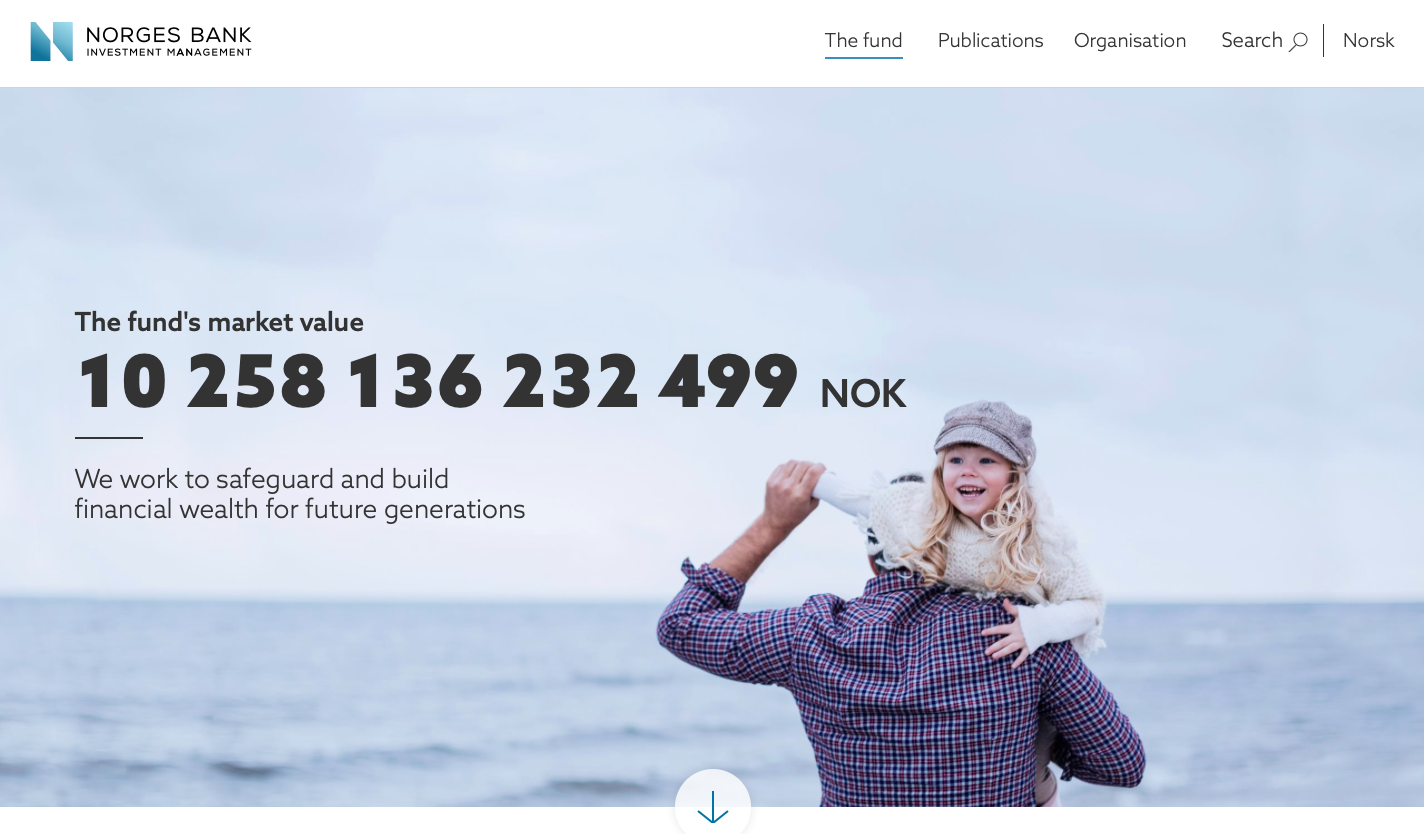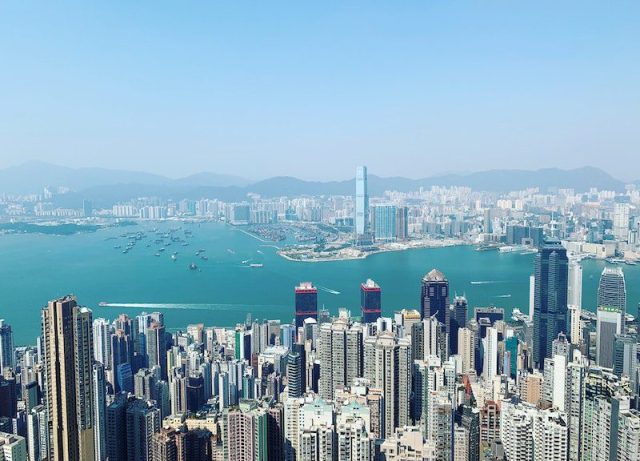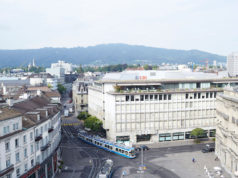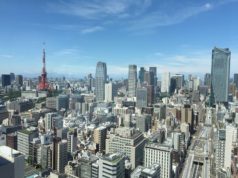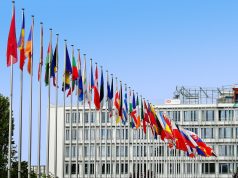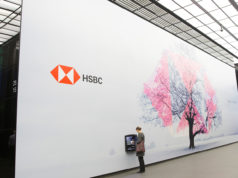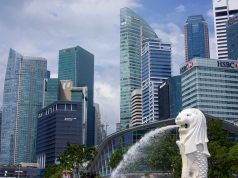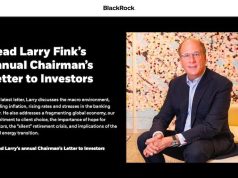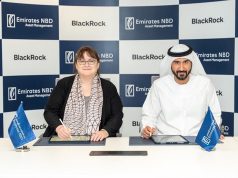CBRE 2023 Asia Pacific Real Estate Investor Intentions Survey: Top 5 Cities are Tokyo, Shanghai, Singapore, Sydney & Beijing, Top 3 Sectors with Reduced Pricing are Shopping Mall, High Street Shop & Grade A Office, Real Estate Average New Fund-Raise $763 Million in 2022
25th February 2023 | Hong Kong
CBRE, the world’s largest commercial real estate services & investment firm, has released the 2023 Asia Pacific Real Estate Investor Intentions Survey on real estate, providing key insights into investors real estate buying intentions, challenges, preferred strategies, sectors & markets for 2023 from 534 respondents (Nov & Dec 2022), including Institutional Investors (insurance companies, pension funds, sovereign wealth funds), Real Estate Fund, Private Equity Fund, Private Investors, Family Offices, REITs, Developers, Owners & Operators. In 2022, the top 10 most attractive cities for property investments are Tokyo, Shanghai, Singapore, Sydney, Beijing, Hong Kong SAR, Seoul, Japan (Regional Cities), Ho Chi Minh City, and Osaka. In 2023, investors from Australia +29%, Japan +25%, Korea +22% have a net increase in buying intention in Real Estate while investors from Hong Kong SAR -13%, Singapore -9%, Mainland China -5% have a net decrease in buying intention. The major challenges for Real Estate in 2023 are Recession & economic uncertainty, Central bank policy, Mismatch in buyer & seller expectations, Geopolitical landscape, Shift in credit availability & loan terms, Persistent inflation, and Currency fluctuation. For Private Investors, Family Offices, HNWs, they display strong intentions to buy and target at Trophy assets, core prime assets, and selected opportunistic deals. For Institutional Investors, buying intention to remain at same level in 2022, though lack of suitable stock at right price, with investors turning risk adverse and await price adjustments. For Equity Fund Managers, it is a challenging environment to raise new funds, with higher cost of finance causing negative carry makes it harder to underwrite deals. Average Fund-Raise for a APAC Real Estate Fund in 2022 – $763.8 million ($295.2 million average from 2017 to 2021). APAC Real Estate Fund – 60% of new funds in 2022 are for opportunistic strategies (seeks price dislocation, distressed opportunities). Top 3 Real Estate Sectors for Investment – Industrial & Logistics, Office, Residential (Multi-Family / Build-to-Rent). Top 3 Sectors with Reduced Pricing – Shopping Mall, High Street Shop, Grade A Office. Top 5 Alternative Sectors for Investment – Healthcare-related assets, Data Centres, Cold Storage, Real Estate Debt, Retirement Living / Senior Housing. Price Premium on ESG Asset (Real Estate) – 25% expect price premium of 6% to 20%, Around 40% expect 1 to 5% price premium, 30% expect no price premium. Top 10 Cities with Most Green Office Buildings (Highest Percentage) – Sydney, Osaka, Brisbane, Tokyo, Singapore, Melbourne, Canberra, Perth, Seoul, Shanghai. See below for key summary
“ Top 5 Cities are Tokyo, Shanghai, Singapore, Sydney & Beijing, Top 3 Sectors with Reduced Pricing are Shopping Mall, High Street Shop & Grade A Office, Real Estate Average New Fund-Raise $763 Million in 2022 “
Greg Hyland, CBRE Head of Capital Markets APAC: “Despite healthy levels of fundraising, most investors are adopting a cautious approach as they look for signs of yield expansion and the interest rate tightening cycle to stabilise. We are expecting investment activity to accelerate in the second half of the year.”
Dr Henry Chin, CBRE Global Head of Investor Thought Leadership & Head of Research APAC: “Industrial and logistics continues to be the most preferred asset class for Asia Pacific investors, followed by office and residential. While there is a drop in interest in office largely due to concerns about the current level of yields, the survey finds that core investors still opt for offices as their top choice. Investors are showing much stronger interest in the residential sector, especially multifamily/built to rent. We expect yields to expand further across all asset classes in 2023.”
CBRE Group, Inc. (NYSE:CBRE), a Fortune 500 and S&P 500 company headquartered in Dallas, is the world’s largest commercial real estate services & investment firm (based on 2022 revenue).
CBRE 2023 Asia Pacific Investor Intentions Survey

CBRE, the world’s largest commercial real estate services & investment firm, has released the 2023 Asia Pacific Real Estate Investor Intentions Survey on real estate, providing key insights into investors real estate buying intentions, challenges, preferred strategies, sectors & markets for 2023 from 534 respondents (Nov & Dec 2022), including Institutional Investors (insurance companies, pension funds, sovereign wealth funds), Real Estate Fund, Private Equity Fund, Private Investors, Family Offices, REITs, Developers, Owners & Operators.
Key Summary
- Top 10 Most Attractive Cities for Property Investment in 2022 – Tokyo, Shanghai, Singapore, Sydney, Beijing, Hong Kong SAR, Seoul, Japan (Regional Cities), Ho Chi Minh City, Osaka
- Top 10 Cities for Cross-Border Investment – Tokyo, Singapore, Ho Chi Minh City, Sydney, Hong Kong SAR, Melbourne, Mumbai, Shanghai, Hanoi, Seoul
- Increase in Net Buying Intentions in 2023 – Australia +29%, Japan +25%, Korea +22% (Investor Origin)
- Decrease in Net Buying Intentions in 2023 – Hong Kong SAR -13%, Singapore -9%, Mainland China -5% (Investor Origin)
- Major Challenges for Real Estate in 2023 – Recession & economic uncertainty, Central bank policy, Mismatch in buyer & seller expectations, Geopolitical landscape, Shift in credit availability & loan terms, Persistent inflation, Currency fluctuation
- Private Investors, Family Offices, HNWs – Display strong intentions to buy. Trophy assets, core prime assets, selected opportunistic deals
- Institutional Investors – Buying intention to remain at same level in 2022. Lack of suitable stock at right price, with investors turning risk adverse and await price adjustments. New capital commitments impacted mainly by United States & European institutional investors. Due to sharp decline in 2022, many institutional Investors have experienced denominator effect.
- Equity Fund Managers – Challenging environment to raise new funds. Higher cost of finance causing negative carry makes it harder to underwrite deals.
- Developers / REITS – Listed group trading at discounts, creating difficulties when making new acquisitions. Some to sell non-core assets. Harder to get bank financing, especially for development projects. New fund-raising will be challenging. Developers will stay on sidelines due to higher cost of financing. Buying intention among investment funds remained stable.
- Debt Providers – Greater risk of default given higher cost of borrowing. Non-traditional lenders (eg. Insurance companies, private equity) are still active as they can charge higher interest rates.
- Top 3 Real Estate Sectors for Investment – Industrial & Logistics, Office, Residential (Multi-Family / Build-to-Rent)
- Top 3 Sectors with Reduced Pricing – Shopping Mall, High Street Shop, Grade A Office
- Top 5 Alternative Sectors for Investment – Healthcare-related assets, Data Centres, Cold Storage, Real Estate Debt, Retirement Living / Senior Housing
- Total Capital Raised for Real Estate Funds in 2022 – Global $334.1 billion, APAC $39.7 billion
- Average Fund-Raise for a APAC Real Estate Fund in 2022 – $763.8 million ($295.2 million average from 2017 to 2021)
- APAC Real Estate Fund – 60% of new funds in 2022 are for opportunistic strategies (seeks price dislocation, distressed opportunities)
- Price Premium on ESG Asset (Real Estate) – 25% expect price premium of 6% to 20%, Around 40% expect 1 to 5% price premium, 30% expect no price premium
- Top 10 Cities with Most Green Office Buildings (Highest Percentage) – Sydney, Osaka, Brisbane, Tokyo, Singapore, Melbourne, Canberra, Perth, Seoul, Shanghai
CBRE 2023 Asia Pacific Investor Intentions Survey
1) On Top Cities for Real Estate
Top 10 Cities for Cross-Border Investment:
- Tokyo
- Singapore
- Ho Chi Minh City
- Sydney
- Hong Kong SAR
- Melbourne
- Mumbai
- Shanghai
- Hanoi
- Seoul
Top 10 Most Attractive Cities for Property Investment in 2022 (Accounted for 76% of Cross-Border Investment Volume in 2022):
- Tokyo
- Shanghai
- Singapore
- Sydney
- Beijing
- Hong Kong SAR
- Seoul
- Japan: Other Regional Cities
- Ho Chi Minh City
- Osaka
Net Buying Intentions in 2023 by Investor Origin (Buying minus Selling):
- Australia – Increase 29%
- Japan – Increase 25%
- Korea – Increase 22%
- Hong Kong SAR – Decrease 13%
- Singapore – Decrease 9%
- Mainland China – Decrease 5%
2) On Real Estate Sentiments (Outlook, Challenges, Opportunities)
Major Challenges for Real Estate in 2023:
- Fear of recession & economic uncertainty
- Central bank policy (rate hikes, not enough quantitative tightening)
- Mismatch in buyer & seller expectations
- Uncertain geopolitical landscape
- Shift in credit availability & loan terms
- Higher &/or more persistent inflation
- Impact of currency fluctuation
Challenges / Opportunities by Investor Type:
- Private Investors, Family Offices, HNWs – Display strong intentions to buy. Trophy assets, core prime assets, selected opportunistic deals
- Institutional Investors – Insurance companies, pension funds & sovereign wealth funds expect buying intention to remain at same level in 2022. Lack of suitable stock at right price, with investors turning risk adverse and await price adjustments. New capital commitments impacted mainly by United States & European institutional investors.
- Equity Fund Managers – Challenging environment to raise new funds. Higher cost of finance causing negative carry makes it harder to underwrite deals.
- Developers / REITS – Listed group trading at discounts, creating difficulties when making new acquisitions. Some to sell non-core assets. Harder to get bank financing, especially for development projects. New fund-raising will be challenging. Developers will stay on sidelines due to higher cost of financing. Buying intention among investment funds remained stable.
- Debt Providers – Greater risk of default given higher cost of borrowing. Non-traditional lenders (eg. Insurance companies, private equity) are still active as they can charge higher interest rates.
3) Institutional Investors Insights
Institutional Investors Allocations to Real Estate in 2023:
- Insurance Companies – 72% to increase, 21% remain the same, 6% to decrease
- Pension Fund – 50% to increase, 33% remain the same, 17% to decrease
- Sovereign Wealth Fund – 75% to increase, 25% remain the same, 0% decrease
Denominator Effect for Asia-Pacific Institutional Investors
- Due to sharp decline in 2022, many institutional Investors have experienced denominator effect. Part of their holdings have significantly decreased, pulling down the overall value of portfolio, but other parts of portfolio did not decrease, and now represents a larger percentage of portfolio.
- Institutional Investors will need to rebalance portfolio by divesting or stop investing into illiquid private market assets such as real estate. However, 93% of institutional Investors in APAC expect allocations into real estate to increase or remain stable in 2023. (In 2022, Singapore GIC invested $40.3 billion)
4) Real Estate Investments (Strategies, Sectors)
Preferred Strategies & Sectors in 2023 (Top 3 Preferred Allocation):
- Core – 19% (Office, Industrial & Logistics, Residential)
- Core-Plus – 23% (Industrial & Logistics, Office, Residential)
- Value-Add – 22% (Industrial & Logistics, Office, Residential)
- Opportunistic – 22% (Industrial & Logistics, Office, Residential)
- Distressed Assets & NPL – 9% (Residential, Industrial & Logistics, Office)
- Other Sectors: Hotels / Resorts, Retail, Others
Top Real Estate Sectors for Investment:
- Industrial & Logistics – Nearly 70% to target at modern logistics facilities in major markets
- Office – 50% prefer prime located Grade A offices, 40% prime located Grade B
- Residential (Multi-Family / Build-to-Rent) – 84% prefer Multi-family
- Hotels
- Alternatives
- Retail – Prime shopping malls, high street shops, neighbourhood malls
Pricing Expectations by Sector:
- Shopping Mall – More than 65% expect discounts
- High Street Shop – More than 60% expect discounts
- Grade A Office – More than 60% expect discounts
- Hotel – More than 50% expect discounts
- Logistics – More than 45% expect discounts
- Multifamily – Around 45% expect discounts
Top Alternative Sectors for Investment:
- Healthcare-related assets (Includes Life Sciences & Medical Offices) – 40%
- Data Centres – 38%
- Cold Storage – 36%
- Real Estate Debt – 29%
- Retirement Living / Senior Housing – 27%
- Student Living – 20%
- Infrastructure (social and economic infrastructure) – 20%
- Self-Storage – 16%
- Leisure / Entertainment – 10%
5) Real Estate Capital-Raising & Dry Powder
Total Capital Raised for Real Estate Funds in 2022:
- Global Fund-Raising – $334.1 billion
- APAC Fund-Raising – $39.7 billion
- Average APAC Fund-Raise – $763.8 million ($295.2 million average from 2017 to 2021)
Real Estate Funds in 2022:
- 60% of new funds in 2022 are for opportunistic strategies (seeks price dislocation, distressed opportunities)
- APAC Dry Power – $65.8 billion (Opportunistic & Core Strategies account for 65%)
- Pan-APAC open-ended funds AUM – $120 billion
Most Dry Powder of Closed-Ended Real Estate Funds in 2022
- Opportunistic (60%)
- Core
- Core-Plus
- Value-Add
- Debt
- Distressed Asset
- Fund of Funds
6) ESG in Real Estate
Impact of Macroeconomic & Geo-Political Climate on ESG adoption in Investment Decisions:
- Will continue to adopt ESG in decisions – More than 55%
- Planning to adopt ESG but current landscape caused delay – Around 15%
- Previously adopted ESG but now reviewing due to current landscape – Around 15%
- Unlikely to adopt ESG – More than 10%
Price Premium on ESG Asset (Real Estate):
- 16% to 20% – Around 1%
- 11% to 15% – Around 4%
- 6 – 10% – More than 20%
- Less than 5% – More than 40%
- No price premium – 30%
Cities with Most Green Office Buildings* (Highest Percentage):
- Sydney
- Osaka
- Brisbane
- Tokyo
- Singapore
- Melbourne
- Canberra
- Perth
- Seoul
- Shanghai
- Delhi NCR
- Bangalore
- Hong Kong SAR
- Beijing
- Taipei
- Jakarta
- Auckland
- Chennai
- Ho Chi Minh City
- Kuala Lumpur
- Hanoi
- Manila
- Bangkok
- Guangzhou
- Hangzhou
- Shenzhen
- Chengdu
- Mumbai
*Office Buildings with Green or Sustainability Certification in APAC
7) 2023 Investment Strategies
Conformist:
- Good quality office assets in gateway cities as structural play
- Offices in Sydney, Melbourne, Hong Kong SAR & Shanghai with attractive price entry in 2023
- Prime modern logistics in Australia (low vacancy), and regional cities in Japan (Yield spreads are attractive)
- Multi-family assets with attractive cash-on-cash yields in Japan. Development opportunities in Mainland China & Australia
Contrarian:
- Realise profits in logistics & multi-family, especially as cap rates (net income / asset value) are expected to move out across the region
- Hotels as tourism rebound in 2023
- Prime retail assets (attractive pricing) in major gateway cities, and secondary locations in Hong Kong SAR, Tokyo & Osaka
- Trophy office assets, business parks, modern logistics facilities, built-to-rent in Mainland China (Shanghai, Beijing)
Vintage:
- Identify value between public & private markets, especially in Australia (but limited opportunities)
- Debt investment including senior to junior loans (Korea, Hong Kong SAR, Singapore, Australia)
- Distressed opportunities in Mainland China, Korea & Australia (where refinancing risk is high)
- Take advantage opportunities to buy high quality assets
The 2023 Asia Pacific Investor Intentions Survey received 534 responses from REITs, Developers, Owners, Operators, Institutional Investors, Real Estate Fund, Private Equity Fund, Private Investors, Family Offices, conducted in November & December 2022.
Respondents by Market Origin:
- Japan – 25%
- Mainland China – 22%
- Singapore – 12%
- Taiwan – 10%
- Australia – 10%
- Hong Kong SAR – 7%
- South Korea – 6%
- India – 4%
- Other Markets – 4%
Respondents by Investor Type:
- REIT – 34%
- Developer / Owner / Operator – 27%
- Institutional Investors – 13%
- Real Estate Fund – 10%
- Private Equity Fund – 7%
- HNWI / Private Investor / Family Office – 3%
- Bank – 3%
- Other Investors – 4%
About CBRE Group
CBRE Group, Inc. (NYSE:CBRE), a Fortune 500 and S&P 500 company headquartered in Dallas, is the world’s largest commercial real estate services and investment firm (based on 2022 revenue). The company has approximately 115,000 employees (excluding Turner & Townsend employees) serving clients in more than 100 countries. CBRE serves a diverse range of clients with an integrated suite of services, including facilities, transaction and project management; property management; investment management; appraisal and valuation; property leasing; strategic consulting; property sales; mortgage services and development services. Please visit our website at www.cbre.com.
Sign Up / Register
Caproasia Users
- Manage $20 million to $3 billion of assets
- Invest $3 million to $300 million
- Advise institutions, billionaires, UHNWs & HNWs
Caproasia Platforms | 11,000 Investors & Advisors
- Caproasia.com
- Caproasia Access
- Caproasia Events
- The Financial Centre | Find Services
- Membership
- Family Office Circle
- Professional Investor Circle
- Investor Relations Network
Monthly Roundtable & Networking
Family Office Programs
The 2025 Investment Day
- March - Hong Kong
- March - Singapore
- July - Hong Kong
- July - Singapore
- Sept- Hong Kong
- Sept - Singapore
- Oct- Hong Kong
- Nov - Singapore
- Visit: The Investment Day | Register: Click here
Caproasia Summits
- The Institutional Investor Summit
- The Investment / Alternatives Summit
- The Private Wealth Summit
- The Family Office Summit
- The CEO & Entrepreneur Summit
- The Capital Markets Summit
- The ESG / Sustainable Investment Summit





